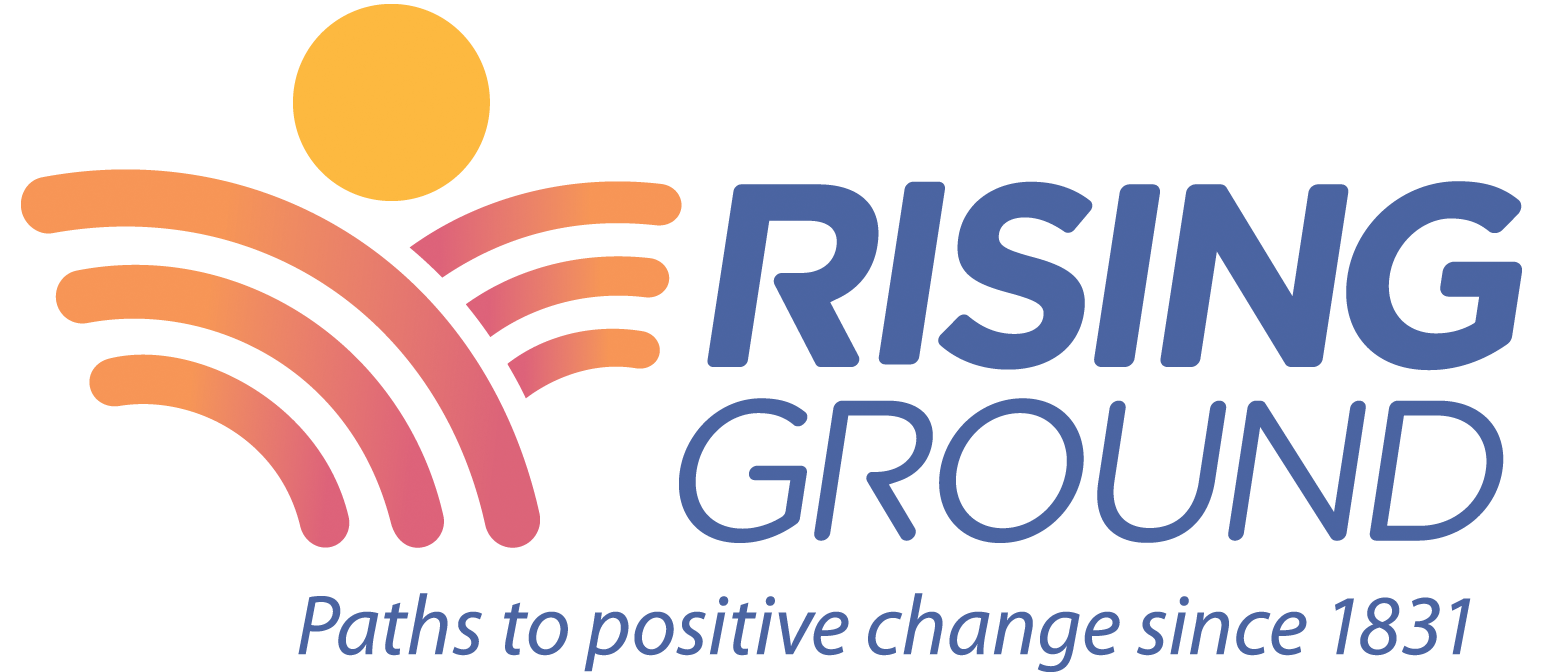News

Supporting Immigrant Children
June 26, 2018
Dear friend,
The horror of children being separated from their parents upon entry into the United States has become international news. As you may know, Rising Ground has supported unaccompanied migrant children over the past four years in our Passage of Hope program. Our work has been with young people who have crossed the border independently. These children typically have adult resources in the US (usually family members) who ultimately sponsor them. Our role is to provide them with sanctuary -- food and shelter, health and mental health services, education, recreation, counseling and more -- while their adult resource is fully vetted so they may safely accept them.
This work with youth coming to this country starting new lives after fleeing truly dire conditions is consistent with our mission since we were founded as an orphanage in 1831. In all our programs, we help individuals move upward and forward in their lives while providing a solid foundation of support. Specifically with regard to youth who have been separated from their parents at the border, we join with others seeking their swift reunification with their parents.
Earlier this week, it was announced that some migrant children who have been separated from their parents are now in New York in the care of children and family serving organizations like Rising Ground. Rest assured that these children are receiving the support and care one would hope would greet each of us were it our time of need. As a member of the Rising Ground family, we thought to share with you some specifics of what the Passage of Hope program really looks like.
- We support unaccompanied children, ages 12-17, in residential cottages on our 33-acre Hudson River campus. Children younger than 12, as well as those with special needs (e.g. - a pregnant or parenting teen or a child that is medically fragile), live with families in certified foster homes in the community. Sibling groups with a child under 12 stay together in foster homes.
- Our work is trauma-informed. This means that we fully understand that these children have had tremendously difficult experiences before coming to us, as well as along their journey here, and that their trauma and their reactions to what they have experienced must be in the forefront as we work with them.
- Our bilingual staff receive 40 hours of comprehensive training on child development, separation and loss, the impact of trauma, CPR, First Aid, human-trafficking and more before they start working with children.
- Children attend a full-day school program Monday through Friday. Instruction includes English as a new language, math, science, social studies and physical education. At least once a week, the children go on educational field trips to places like museums.
- Children engage in all types of recreation each day. Activities include playing soccer, swimming in one of our pools or playing board games or visiting the community around them with trips to the Statue of Liberty, Governor’s Island, Yankee stadium, the High Line, the Bronx Zoo, local parks, natures centers, and the aquarium.
- Children tell us they feel safe soon after they arrive. Upon arrival we offer a meal, new clothes, and a shower.
- We immediately connect them with family members in the US or their home country. And, we ensure that they remain in touch.
- We bring children for an initial medical examination within 48 hours and make certain they have appropriate vaccinations.
- Children are fully informed of the services they will receive while with us and of their rights. They are linked with their caseworker upon arrival.
- Each child has a caseworker and a clinician. Caseworkers have caseloads of 8 children. Clinicians have caseloads of 12. Clinicians provide individual and group therapy. Caseworkers are responsible for initiating and executing the reunification process with an identified sponsor, usually a family member, that culminates in a prompt and safe release from our care.
While this week has brought a flurry of media inquiries, public misconceptions about our work, and inspections from regulatory bodies (which we welcome), it has mostly garnered a tremendous amount of support from the community and from long-time friends. We have had offers to become volunteers and foster parents, as well as for donated goods and funds. This outpouring of support has been heartwarming and encouraging.
If you haven’t done so and would like to lend your support, we welcome your donation at RisingGround.org/Donate. If you are Spanish-speaking and would like to become a foster parent, please reach out to us at [email protected]. As far as volunteering, we have limited ability to link you with opportunities within the Passage of Hope program. However, we have many other opportunities through one of our other programs where you may lend your talents and time. You can contact us at [email protected].
I have been fortunate to have spent time with the children in our Passage of Hope program. I am often struck by the weight of their experiences. No child should witness so much loss or fear. I am equally struck by their resilience and by their hope for a better future for themselves and their families. All the children at Rising Ground – in fact all the vulnerable persons we support – look to us to do right by them. You can count on us to do just that.
With sincere thanks,
Alan Mucatel
